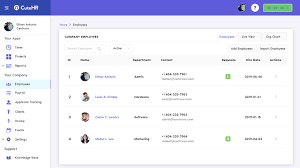Kensington Hospital Detox Program: Trusted Medical Detox in Philadelphia

For individuals seeking a safe, effective pathway to recovery from substance abuse, the Kensington Hospital Detox Program offers comprehensive detox services in Philadelphia. This facility ensures that patients receive expert medical supervision, personalized care, and ongoing support throughout their recovery journey. With a multidisciplinary team of doctors, nurses, psychiatrists, and counselors, the Kensington Hospital Detox Program is designed to treat both physical withdrawal symptoms and underlying mental health needs.
Why Choose the Kensington Hospital Detox Program?
Choosing a quality detox program is critical to long‑term recovery success. The Kensington Hospital Detox Program stands out for its medical protocols, individualized care plans, and commitment to dignity and safety. Each patient is assessed on arrival to determine physical, psychological, and social risk factors. Detox is closely monitored to reduce complications such as dehydration, seizures, or emotional distress.
The program offers discreet inpatient detox rooms, round‑the‑clock nursing supervision, and immediate access to physicians. Staff focus on stabilizing patients safely before transitioning into treatment or outpatient care based on individualized plans. The Kensington Hospital Detox Program also emphasizes building trust and reducing stigma—creating a welcoming, judgment‑free environment for those taking this step toward recovery.
What Substances Are Managed in the Detox Program?
The Kensington Hospital Detox Program accepts patients withdrawing from a broad range of substances, including:
-
Alcohol and benzodiazepines (high withdrawal risk)
-
Opioids (prescription or illicit)
-
Prescription sedatives and stimulants
-
Cocaine or methamphetamine
-
Polysubstance use
Medical protocols are tailored to the specific substance and patient history, using evidence‑based detox medications and therapies as appropriate. All withdrawal support is administered under physician guidance to minimize discomfort and improve patient stability.
Steps in the Kensington Hospital Detox Program
1. Admission & Assessment
Patients begin with a thorough physical and psychological assessment. This includes vital signs, lab tests, psychiatric screenings, and evaluation of co-existing conditions.
2. Medical Detox Phase
During the detox phase, patients remain in observation with nursing support. Medication is administered as needed—such as buprenorphine for opioid withdrawal or benzodiazepine tapering for alcohol detox. Symptom management is prioritized to balance safety and comfort.
3. Psychiatric & Behavioral Support
Mental health professionals work alongside medical staff to address underlying issues like anxiety, depression, or trauma. Group and individual counseling sessions help patients understand triggers and develop coping skills.
4. Transition Planning
Before discharge, patients participate in transition planning, which may include referrals to rehab, outpatient therapy, sober living, or support groups. A completed plan helps ensure continuity of care beyond detox.
5. Aftercare Coordination
The Kensington Hospital Detox Program emphasizes relapse prevention. Patients receive follow‑up calls, links to recovery networks, and ongoing counseling opportunities to maintain progress.
Who Benefits from the Kensington Hospital Detox Program?
The program is ideal for adults, veterans, and individuals dealing with chronic or severe substance abuse. It is appropriate for both voluntary admissions and cases referred by ERs, family physicians, or partner clinics. Patients who require safe, medically managed withdrawal and ongoing behavioral health support are particularly well-suited for the Kensington Hospital Detox Program.
Many patients have tried outpatient detox and relapsed due to unmanaged symptoms or lack of structured support. The Kensington Hospital Detox Program addresses these gaps by offering inpatient care, structured environment, and professional oversight.
Safety and Accreditation
Patient safety is a top priority. The Kensington Hospital Detox Program adheres to state regulations and maintains strict medical protocols. Staff receive ongoing training on latest detox methods, safety procedures, and trauma-informed care approaches.
Moreover, protocols ensure seamless coordination with emergency services, as well as continuity between detox and inpatient or outpatient treatment. Families and caregivers are encouraged to participate in planning, with education sessions and access to social work support before patient discharge.
Building a Healing Environment
Detox can be an emotionally and physically challenging period—making the environment essential. The Kensington Hospital Detox Program provides semi-private rooms, secure premises, nutritious meals, and access to spiritual care. A sense of safety, routine, and compassionate staff support help patients regain trust and focus on recovery.
Daily schedules include light group activities, stress reduction techniques (like mindfulness or breathing exercises), and peer support options to reduce isolation.
Integration with Ongoing Treatment
Detox is only the first phase. The Kensington Hospital Detox Program offers strong coordination with longer‑term treatment. The facility partners with local rehab centers and outpatient programs specializing in substance abuse and co‑occurring disorders. Treatment recommendations are based on patient progress, medical needs, and personal goals.
A discharge plan may include:
-
Referral to intensive outpatient programs (IOP)
-
Enrollment in sober living or structured housing
-
Connection to peer recovery coaches and local support groups
-
Planning for vocational or housing assistance if needed
Insurance and Financial Assistance
Access to detox should not be hindered by cost. The Kensington Hospital Detox Program accepts most major insurance plans—including Medicaid, Medicare, and private insurance. Insurance coordinators help verify benefits and advise on out‑of‑pocket costs.
For those without coverage, the program offers sliding scale fees and assistance with state-funded detox programs or community resources. Financial counselors work with patients and families to secure attainable payment plans.
Success Stories: Real Patient Outcomes
Though anonymized for privacy, past patients at the Kensington Hospital Detox Program have reported life-changing results. Many describe it as:
-
A turning point in ending active addiction
-
A safe and supportive space to begin recovery
-
A catalyst for long-term treatment and a sober lifestyle
Several individuals credited the structured medical care and caring staff with helping them stabilize and commit to recovery for the first time in years.
Frequently Asked Questions
Is the detox program medically supervised?
Yes. Every patient in the Kensington Hospital Detox Program is monitored by medical professionals 24/7 during the detox phase.
How long does detox typically last?
Length varies depending on the substance and severity of use, ranging from 3 to 7 days, up to 10 days in complex cases. The program ensures safety and stabilization before discharge.
Can I stay if I relapse during detox?
Yes. Emergent relapses or complications are managed medically, and patients can remain in care until safe transition is confirmed.
What happens after detox?
The Kensington Hospital Detox Program collaborates with post-detox treatment centers and offers personalized discharge planning to support long-term recovery.
How do I admit someone?
Admissions can occur via self-referral, phone call, or through healthcare providers. Intake specialists guide families and patients through the process smoothly.
Why the Kensington Hospital Detox Program Stands Out
-
Medical excellence—experienced staff specializing in addiction recovery
-
Personalized care plans—no one-size-fits-all approach
-
Structured environment and safety—critical for physical stabilization and emotional support
-
Seamless transition to continuing care—reduces relapse risk
-
Exceptionally high patient satisfaction—many patients cite supportive staff as key to healing
By focusing on both medical stability and emotional readiness, the Kensington Hospital Detox Program delivers a well-rounded path to recovery, setting patients on a sustainable road to wellness.
Final Thoughts
The journey to sobriety often begins with safe, medically supervised detox. The Kensington Hospital Detox Program provides compassionate care, clinical expertise, and structured support to help individuals take that first crucial step toward recovery. With close medical supervision, coordination with follow-up treatment, and a trauma-aware environment, the program offers both immediate relief and long-term hope.
If you or someone you care about is struggling with substance use, the Kensington Hospital Detox Program may be the healing path you need to start a new, healthier chapter of life.




